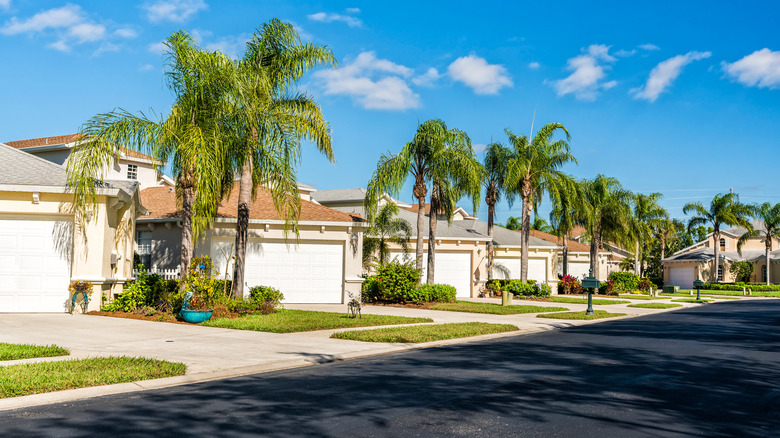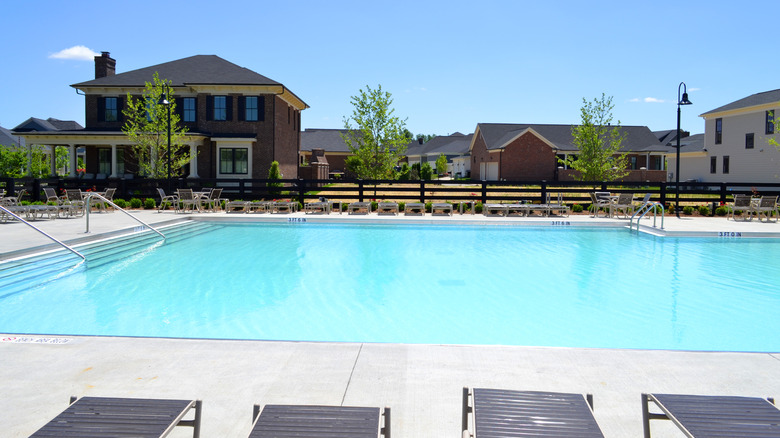Why Your Homeowner's Association Fees Are So High
It's an amount few of us are likely to think about paying unless, and until, we're on the verge of signing a new lease or a mortgage; yet the expense can be as essential as the utilities you're paying for, from electricity to gas and water.
If you live in a condominium or are part of a gated community, chances are you're already familiar with an HOA — or a homeowner's association — the group that's responsible for the upkeep of your community: from ensuring that your gardens and common areas are tidy and look their best to maintaining facilities like parking areas, swimming pools, and security systems. Certified financial planner Mark Kinsella explains that an HOA is meant "to keep the community attractive and uniform. Every homeowner in the community benefits by receiving the same care as everyone else" (via Next Advisor).
To do all this, the homeowner's association needs money, says Realtor.com, and in order to get the money, the HOA collects fees from all its community members. As of 2020, nearly 74 million Americans, or about 27% of the country, live in a community managed by a homeowner's association, according to the Community Associations Institute.
HOA fees are used to maintain common areas
How much you pay in HOA fees and how often you pay the amount will depend on where you live and how big your property is. HOA payments can be made once a month, once a quarter, or once a year. Financial planner Jeff Burkey explains, "If the HOA is small, they might charge [the fee] on an annual basis. For places like a condo or townhouse where the fee is a little higher, [the fee] is usually charged on a monthly basis." And while fees vary, depending both on the community and the region you live in, the amount generally runs to about $200 to $300 a month if you live in a single-family home (via Realtor.com).
What those fees specifically cover depends on the kind of services your HOA provides. Other than the cost of utilities used in common areas, the CAI says fees can also cover a range of services, from roadworks to snow and trash removal, as well as the management of storm drains. Further, according to the association, a portion of the HOA fees collected is put aside as contingency, "for the repair, replacement, and enhancement of common property — e.g., swimming pools, elevators, and resurfacing streets." All these are covered by reserve funds, which the CAI estimates at about $27.4 billion.

